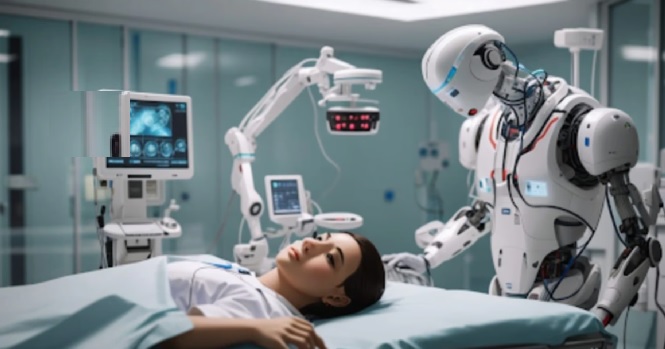China has launched the world’s first fully AI-powered hospital, marking a groundbreaking shift in the global healthcare landscape.
Developed by researchers at Tsinghua University, the "Agent Hospital" is a virtual medical facility run entirely by artificial intelligence, according to Timesofindia.com.
This innovative model enables AI doctors to treat up to 10,000 patients within days—a feat that would take human physicians nearly two years to accomplish.
Beyond streamlining healthcare delivery, this revolutionary technology has the potential to transform medical education and training. AI-driven hospital models could play a critical role in addressing the global shortage of healthcare professionals, especially in underserved regions.
By leveraging AI for diagnosis, treatment planning, patient monitoring, and administrative tasks, such hospitals can help bridge the gap between healthcare demand and provider availability.
This technology-driven approach reduces dependence on human doctors while delivering faster and more accurate medical assessments.
AI hospitals also offer consistent, around-the-clock care with minimal fatigue—ideal for remote or resource-constrained environments.
Beyond patient care, Agent Hospital is poised to revolutionize medical education. Medical students can now train in a risk-free, hyper-realistic environment that replicates a wide variety of conditions—some of which they might never encounter in traditional internships.
AI doctors can provide instant feedback, monitor learning curves, and expose students to high-pressure decision-making in real time.
This form of training isn’t just a novelty—it’s a scalable solution to global shortages in clinical training infrastructure.
Students in remote or underfunded areas can access elite medical education through a headset and stable internet connection.
Key Benefits of AI Hospitals:
Cost-effective healthcare delivery
Standardized treatment protocols
24/7 medical availability
Reduced waiting times
Improved resource utilization

